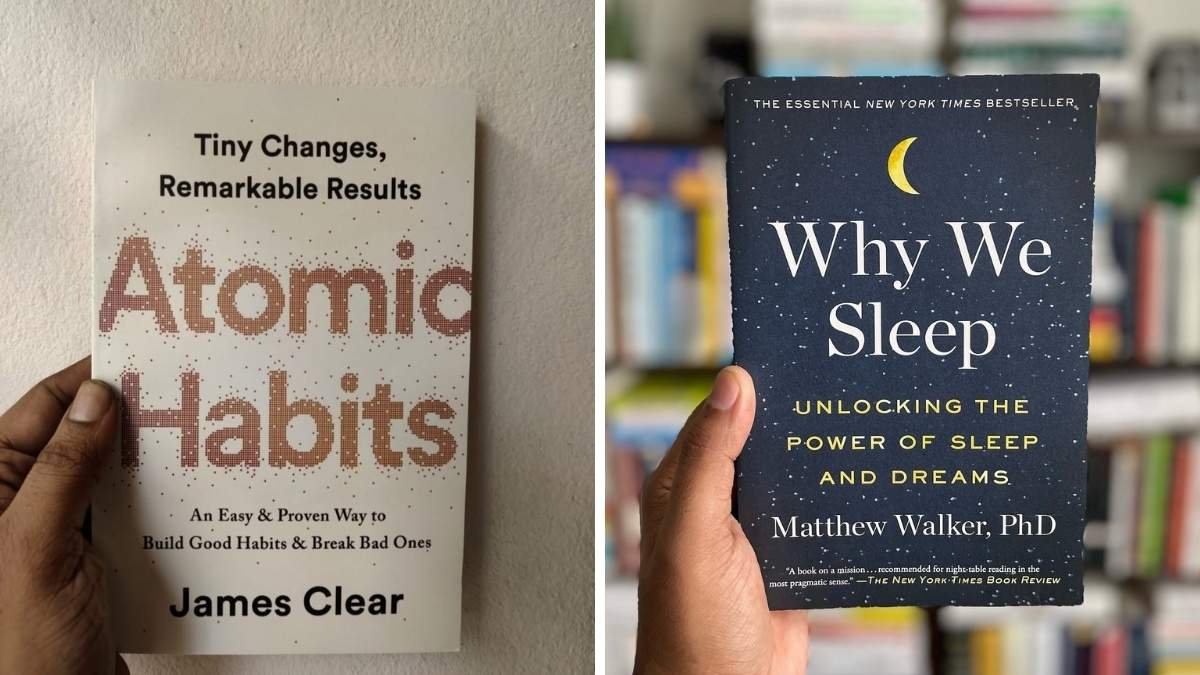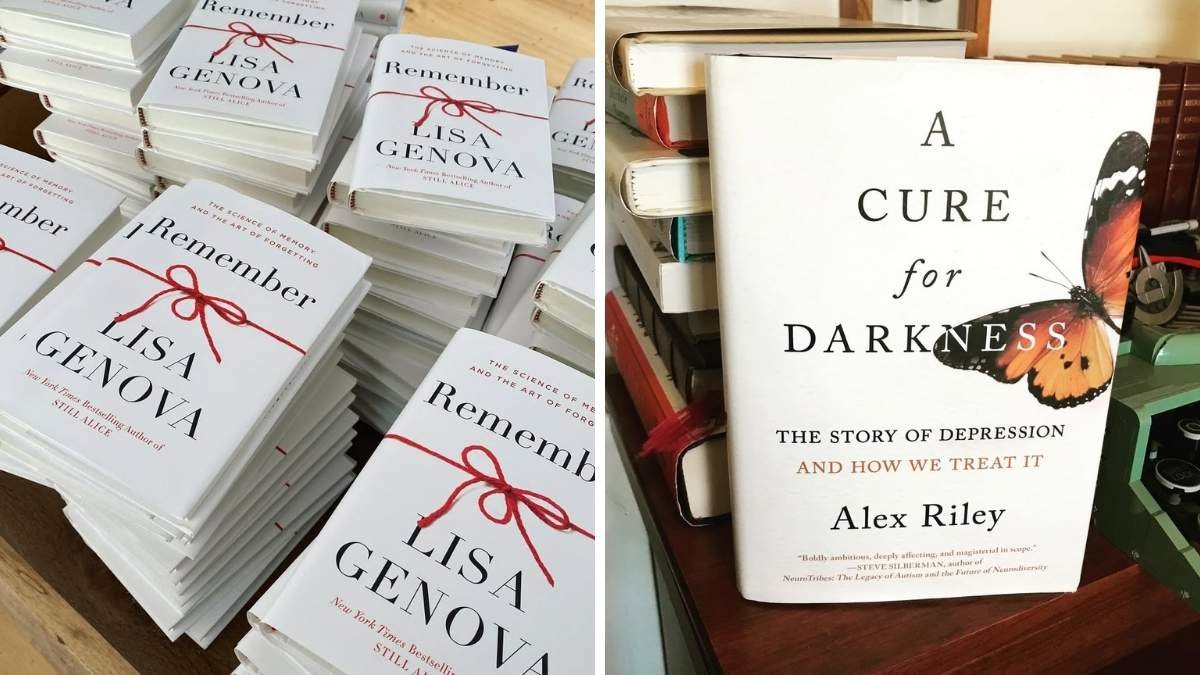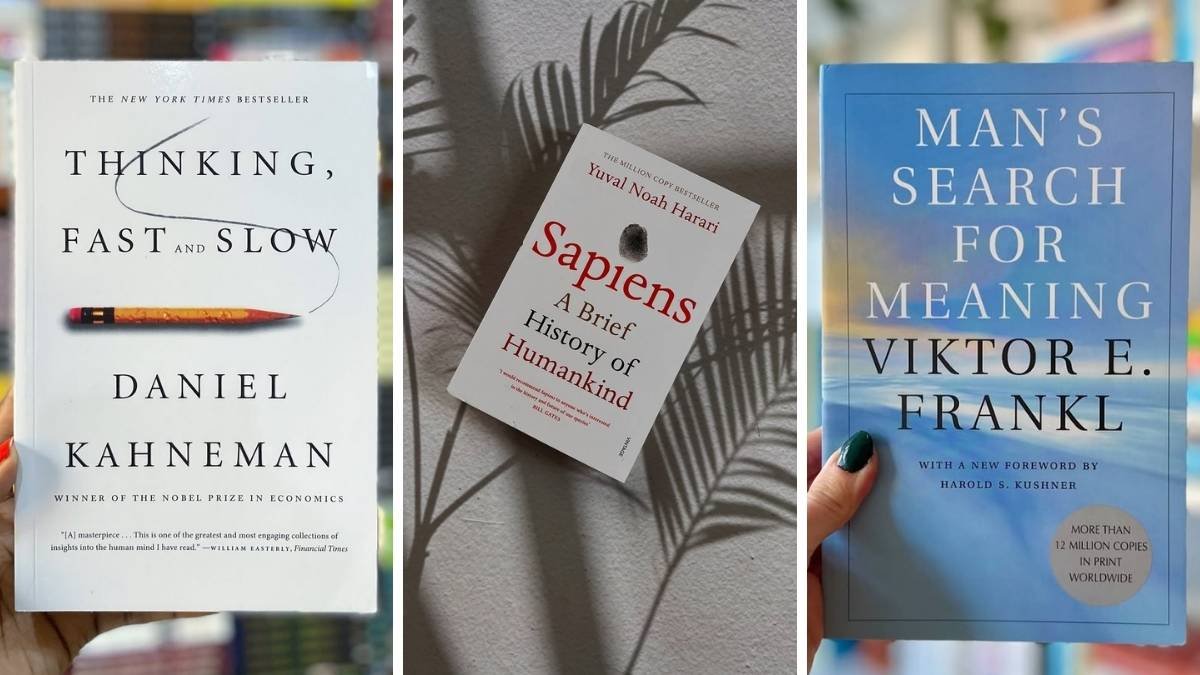
There’s no shame in admitting it: brain fog happens. Whether it’s forgetting where you parked the car, struggling to recall that coworker’s name, or staring blankly at your phone wondering why you picked it up, cognitive slumps are a universal annoyance.
But what if you could reclaim your mental edge—and even outsmart the wired-up teenagers in your life? Enter the power of books.
From neuroscience to mindfulness, these 9 reads are your secret weapons to sharpening your brain, boosting memory, and banishing fuzzy thinking for good. Let’s dive into the first five (and maybe sneak in a few bonus tips along the way).
1. “Grain Brain” by Dr. David Perlmutter

Boldened Phrase: “Carbs are the silent brain assassins.”
If you’ve ever blamed your afternoon slump on “senior moments,” Dr. Perlmutter will blow your mind (literally). A neurologist by trade, he argues that grains, sugars, and processed carbs trigger inflammation, insulin resistance, and—gasp—brain atrophy. Ever wonder why that post-bread coma feels so familiar? It’s not just laziness—it’s your brain begging for mercy. Perlmutter’s advice? Swap the pasta for leafy greens, omega-3-rich fish, and healthy fats (hello, avocado toast). Critics might call this low-carb zealotry, but the research backing keto’s brain benefits is hard to dismiss.
Why It Works: Studies show that reducing carbs can improve cognitive function, especially in folks with insulin resistance. And hey, swapping bagels for blueberries isn’t just brain-healthy—it’s delicious.
2. “Spark: The Revolutionary New Science of Exercise and the Brain” by John J. Ratey

Boldened Phrase: “Sweat is your brain’s fertilizer.”
Ratey’s mission is to shame us all into moving—now. His thesis? Exercise isn’t just for your abs; it’s a miracle drug for your prefrontal cortex. When you run, lift, or even dance, your brain floods with BDNF (Brain-Derived Neurotrophic Factor), a protein that acts like Miracle-Gro for neurons. Translation? Sharper memory, better focus, and a mood boost that makes Prozac look obsolete.
Why It Works: Ratey cites schools where student test scores soared after mandatory fitness classes. Even a 20-minute walk can enhance creativity. Next time you zone out at your desk, remember: your brain craves motion.
3. “Brain Maker: The Power of Gut Microbes to Heal and Protect Your Brain” by David Perlmutter

Boldened Phrase: “Your gut is your second brain.”
Move over, kale. Probiotics are the new superfood. Perlmutter’s follow-up to Grain Brain dives into the gut-brain axis—the hidden superhighway linking your intestines to your synapses. Fun fact: 90% of your serotonin (the happy hormone) is made in your gut. If your microbiome is out of whack (thanks, fast food!), your mood and memory pay the price. His fix? Fermented foods (kimchi, sauerkraut), fiber, and antibiotics avoidance.
Why It Works: Research links gut health to autoimmune diseases and Alzheimer’s. One study found that probiotics improved depression scores by 50% in just eight weeks. You’re gardening your insides—and your brain thanks you.
4. “The End of Alzheimer’s” by Dale Bredesen

Boldened Phrase: “Alzheimer’s isn’t inevitable—it’s reversible.”
Bredesen’s book is a game-changer for anyone terrified of losing their mind. He flips the script on dementia, arguing that cognitive decline stems from 36 treatable factors (think hormones, toxins, and sleep). His protocol? A personalized plan involving nutrition, supplements, and lifestyle tweaks. Skeptical? So were we until we read about patients regaining lost memories.
Why It Works: Bredesen’s work is backed by peer-reviewed trials. While not a cure-all, his focus on early intervention gives hope. Plus, who doesn’t want to optimize their brain before crisis hits?
5. “The Brain Warrior’s Way” by Daniel Amen

Boldened Phrase: “Your brain is a battleground—and you’re the general.”
Neuropsychiatrist Amen blends brain scans, nutritional science, and mindfulness to help readers “fight” cognitive decline. His mantra? “If you don’t take care of your brain, who will?” He dives into topics like food intolerances (ditch gluten if you’re foggy) and the dangers of chronic stress. What sets Amen apart? His emphasis is on SPECT imaging to visualize brain health.
Why It Works: Amen’s practical advice—like intermittent fasting and omega-3s—is backed by his clinical practice. Plus, his no-nonsense tone (“No more excuses!”) is oddly motivating.
6. “Atomic Habits: An Easy & Proven Way to Build Good Habits & Break Bad Ones” by James Clear

Boldened Phrase: “Habits are the compound interest of self-improvement.”
Let’s face it: brain health isn’t a one-time fix—it’s a lifestyle. Clear’s book isn’t just about flossing or drinking water; it’s a blueprint for rewiring your daily routine to support mental clarity. He breaks down the “Four Laws of Behavior Change,” showing how tiny tweaks (like placing a book on your nightstand) can build lasting habits. Ever struggled to meditate? Clear suggests starting with “one minute a day”—so simple, it’s genius.
Why It Works: Clear’s research shows that habits shape 40% of our daily actions. By focusing on systems (not goals), you create an environment where brain-boosting behaviors become automatic. One reader even credits the book with helping her quit sugar—and her focus has never been sharper.
7. “The Organized Mind: Thinking Straight in the Age of Information Overload” by Daniel J. Levitin

Boldened Phrase: “Multitasking is a neurological myth—your brain can’t do two things at once.”
If you’ve ever panicked at an overflowing inbox or a 45-tab browser, Levitin’s book is your lifeline. A neuroscientist and former record producer, he explains why constant notifications fracture focus. His solution? Organize your life like a playlist. Batch tasks, create “mental file cabinets,” and reclaim your attention span.
Why It Works: Levitin’s research shows that chronic multitasking shrinks the anterior cingulate cortex—a region critical for decision-making. Trade “busy” for “intentional,” and watch your brain fog lift.
8. “Why We Sleep: Unlocking the Power of Sleep and Dreams” by Matthew Walker

Boldened Phrase: “Sleep deprivation is a silent epidemic—killing creativity, memory, and longevity.”
Walker’s book is the ultimate wake-up call (pun intended). He debunks the “I’ll sleep when I’m dead” culture, proving that skimping on Z’s damages synapses,情绪 regulation, and even your immune system. Fun fact: REM sleep is your brain’s “ overnight therapy,” processing emotions and consolidating memories.
Why It Works: Walker’s data is chilling: one night of poor sleep reduces problem-solving by 30%. Prioritize sleep hygiene (dark rooms, no screens), and you’ll think sharper than a caffeine fiend.
9. “The Brain That Changes Itself: Stories of Personal Triumph from the Frontiers of Brain Science” by Norman Doidge

Boldened Phrase: “Your brain is plastic—not fixed—and can rewire itself at any age.”
Doidge’s groundbreaking book proves that recovery from trauma, stroke, or even aging isn’t just possible—it’s common. Through case studies (like a man who “rewired” his balance after a stroke), he shows how neuroplasticity lets us heal and grow. Key takeaway? Challenge your brain daily—learn an instrument, meditate, or try a new hobby.
Why It Works: Doidge’s stories humanize science, making neuroplasticity feel achievable. Even a 10-minute daily puzzle can strengthen neural pathways.







